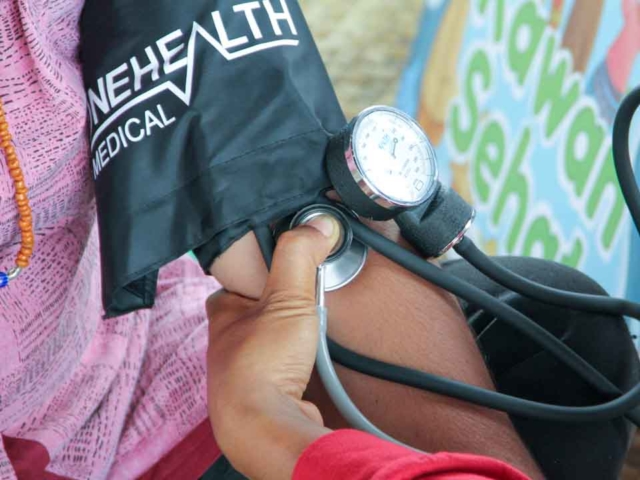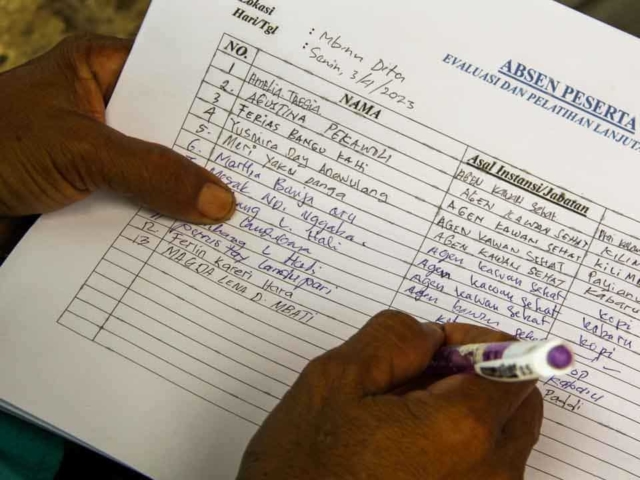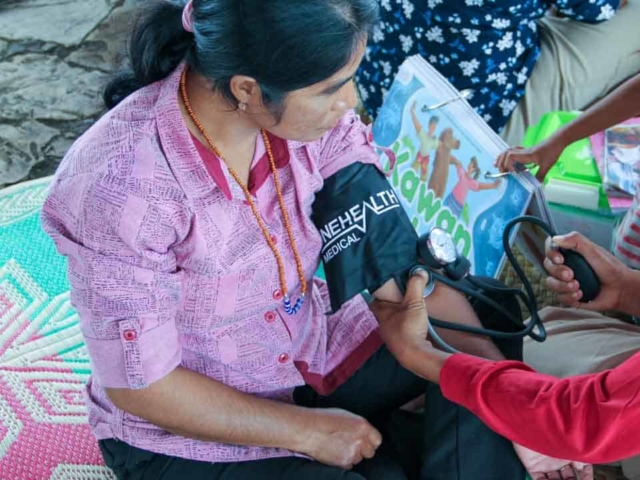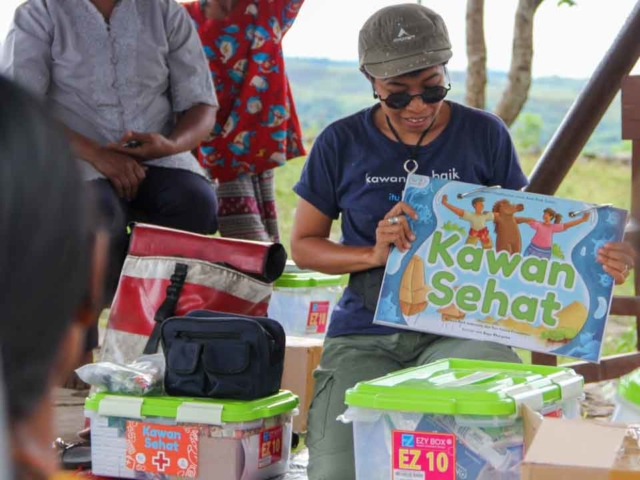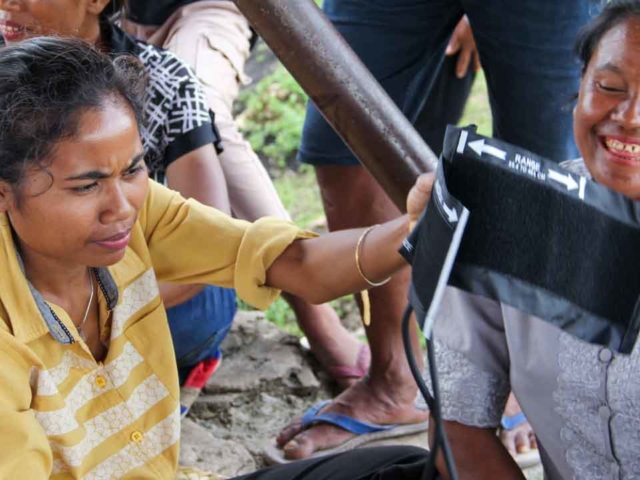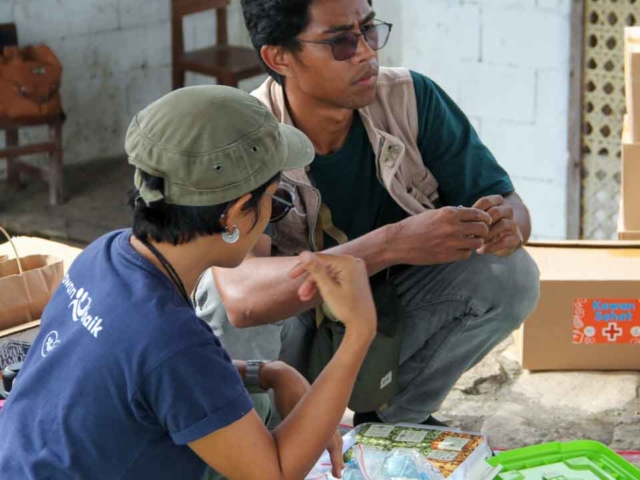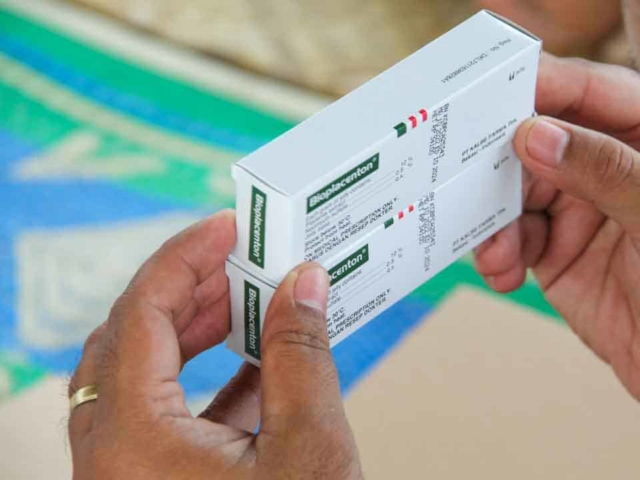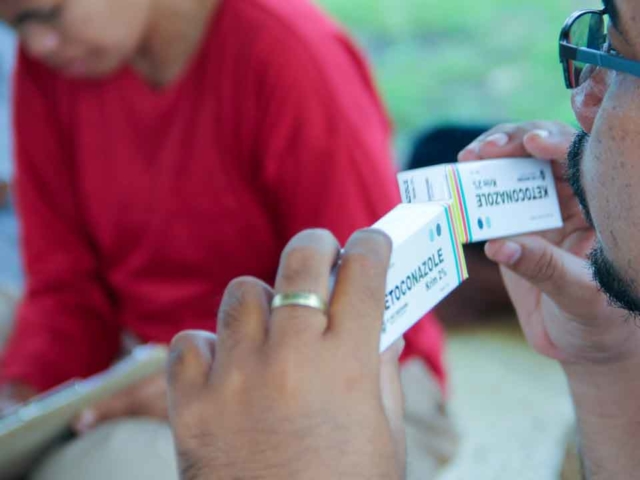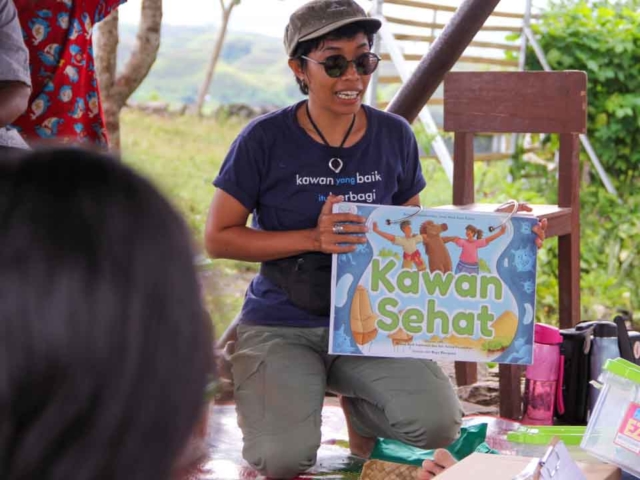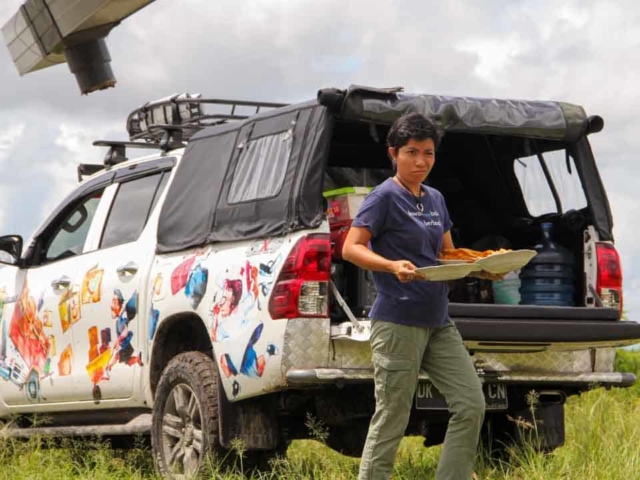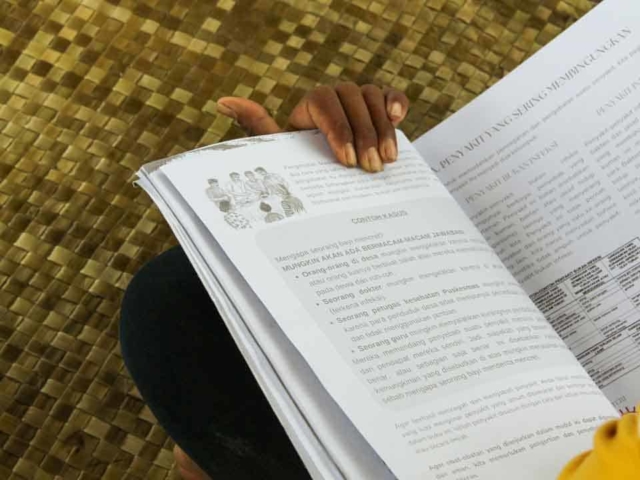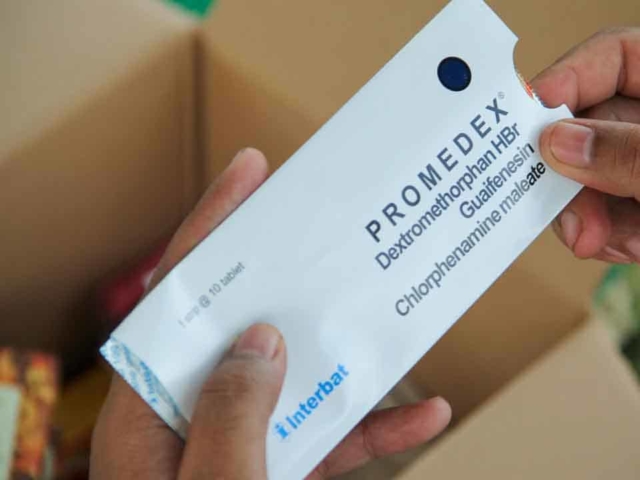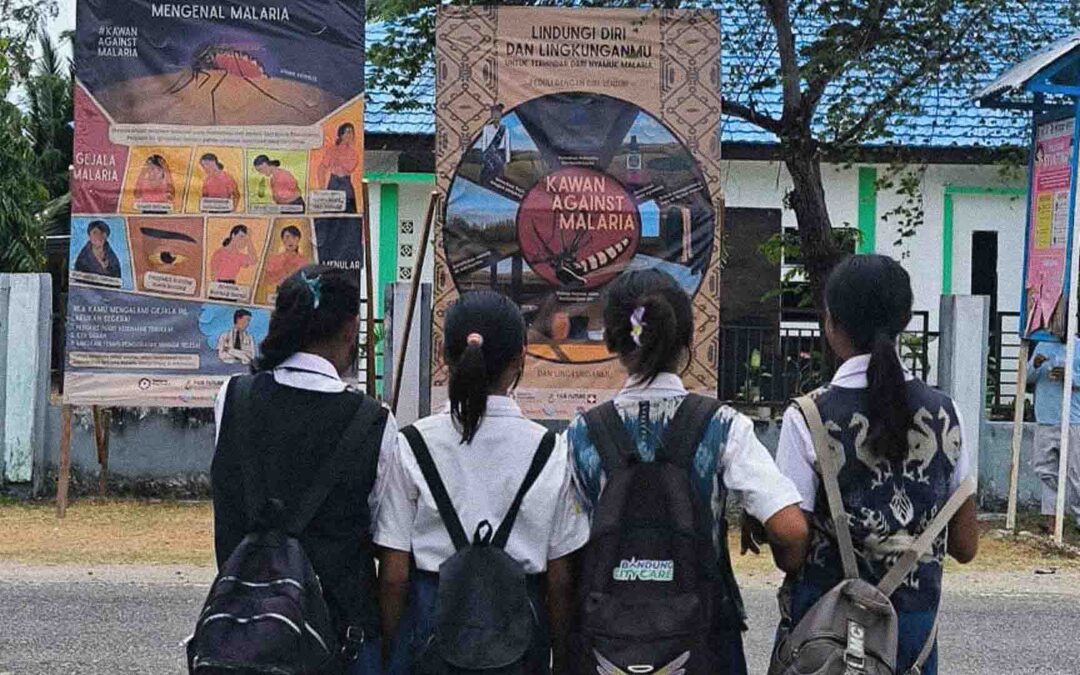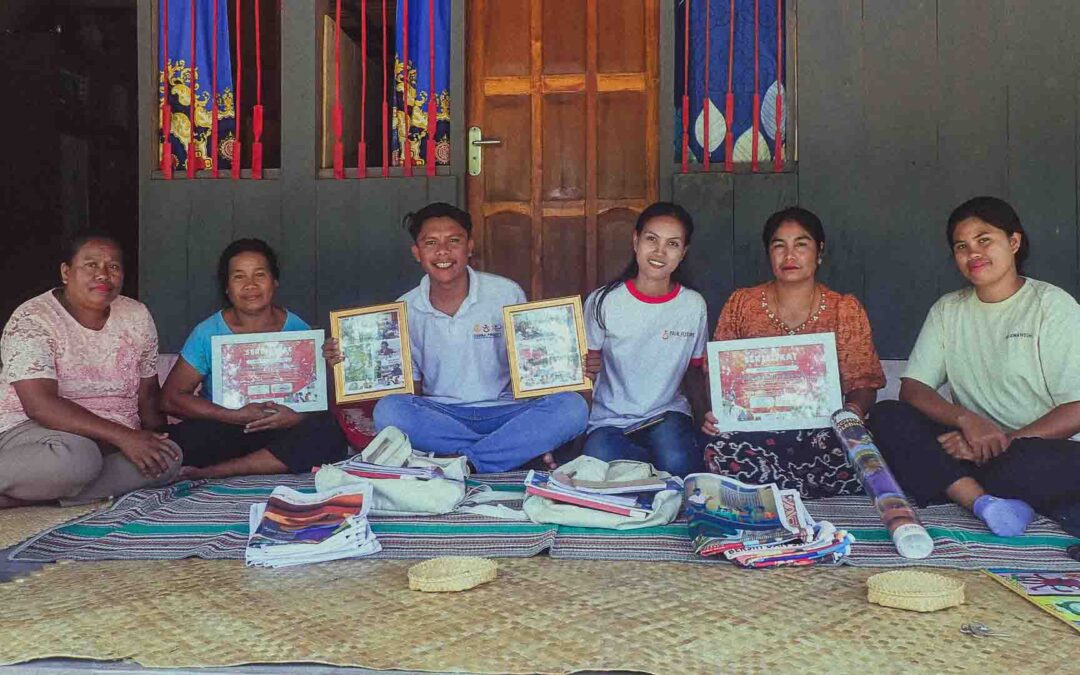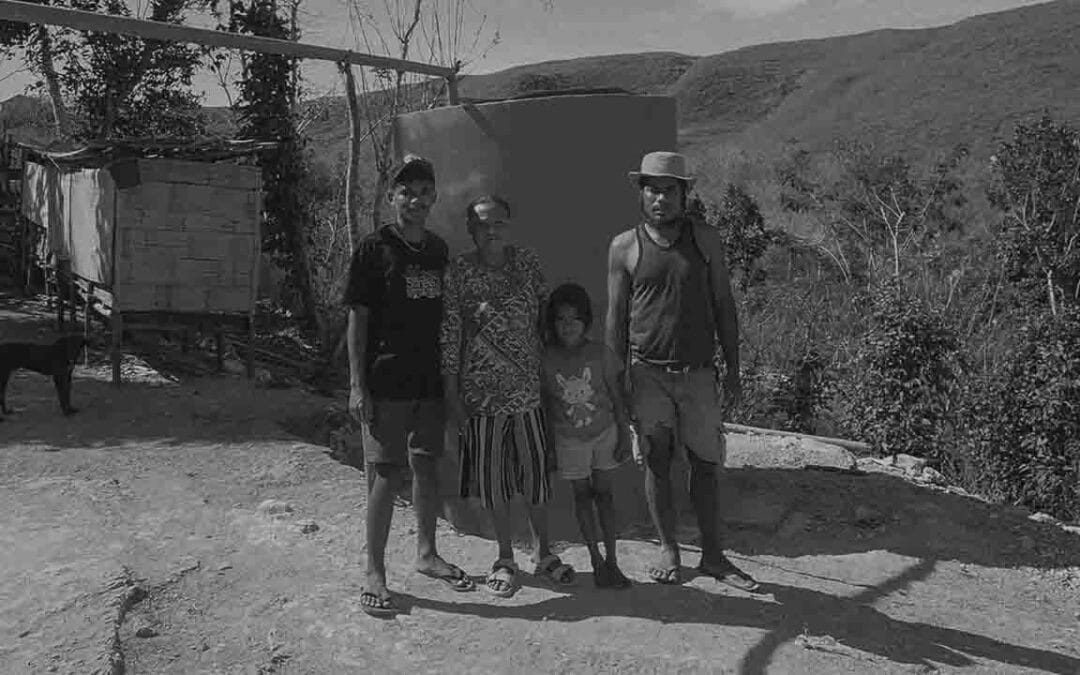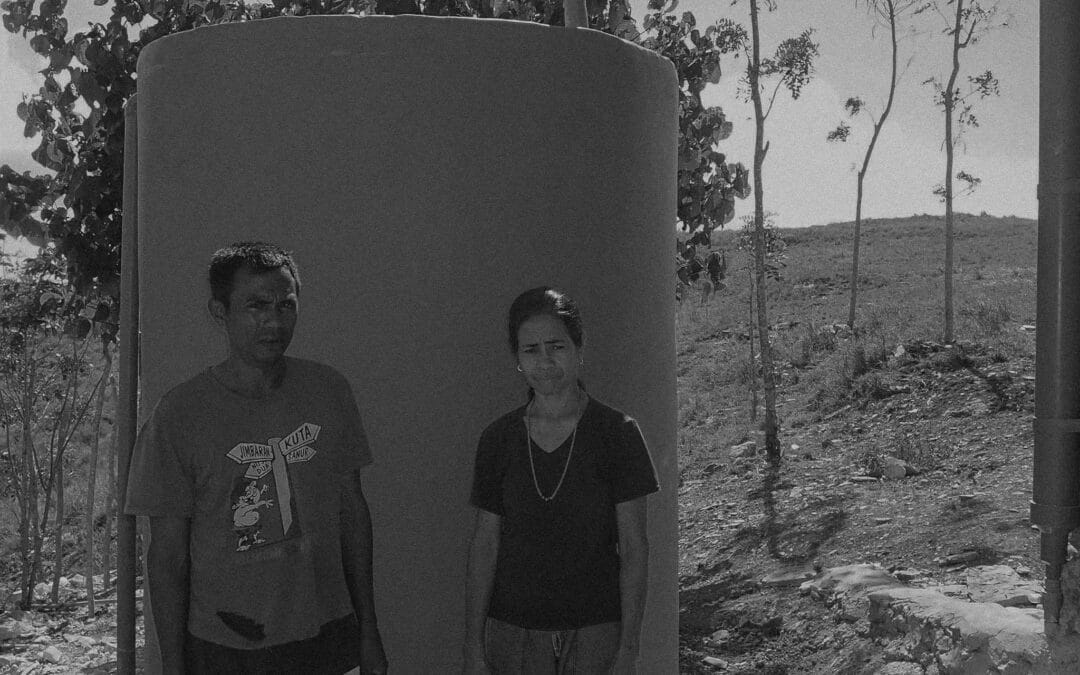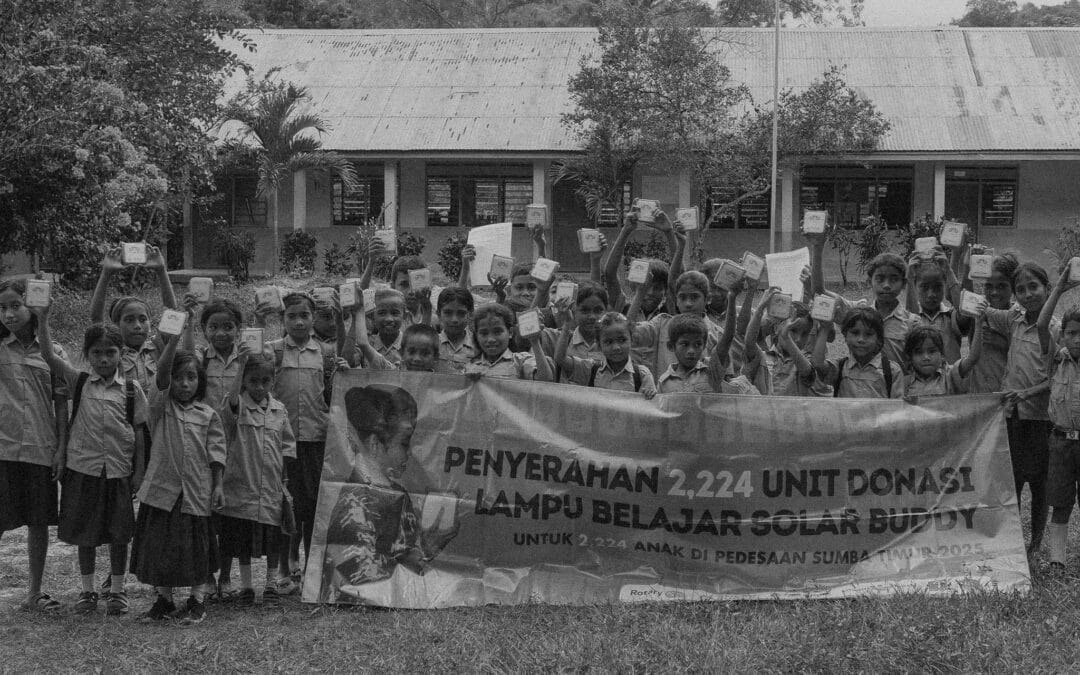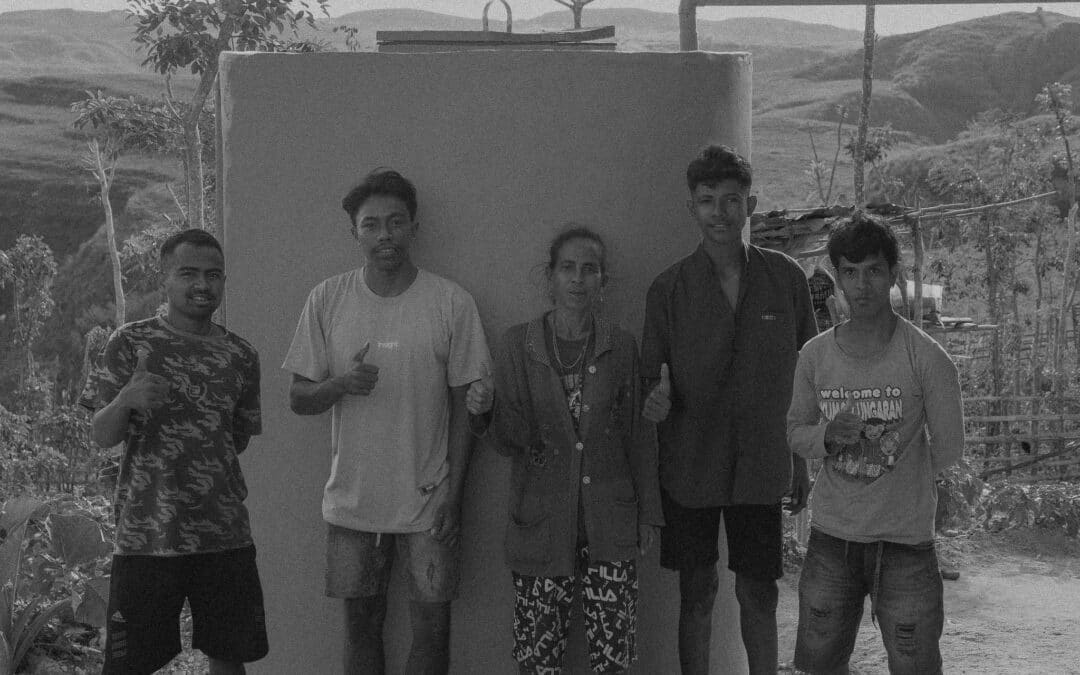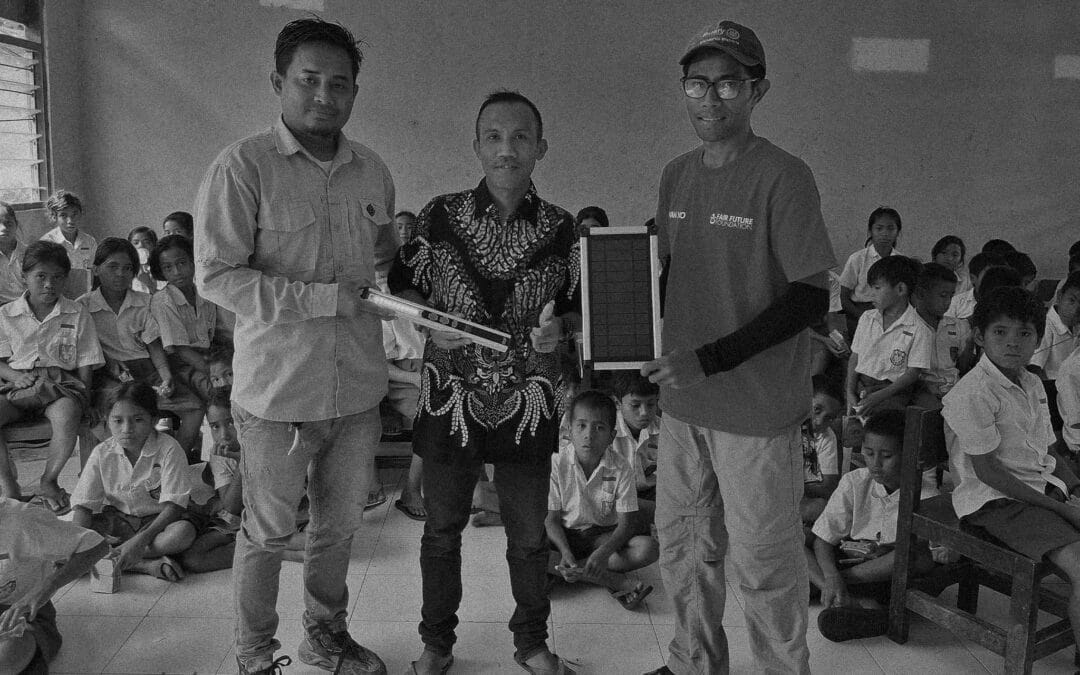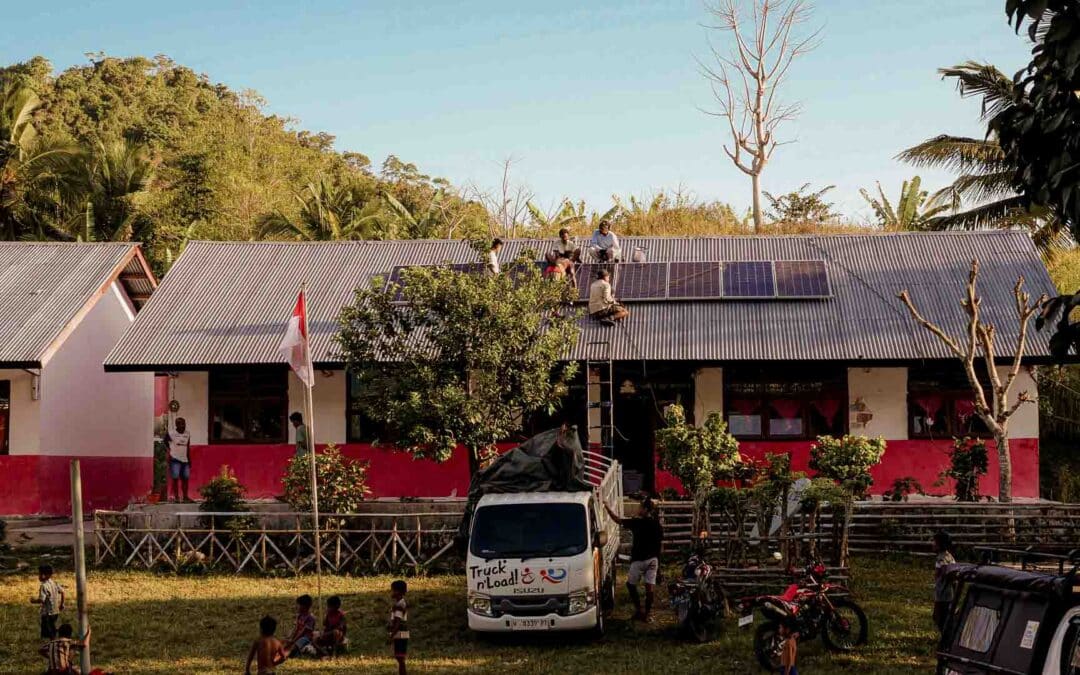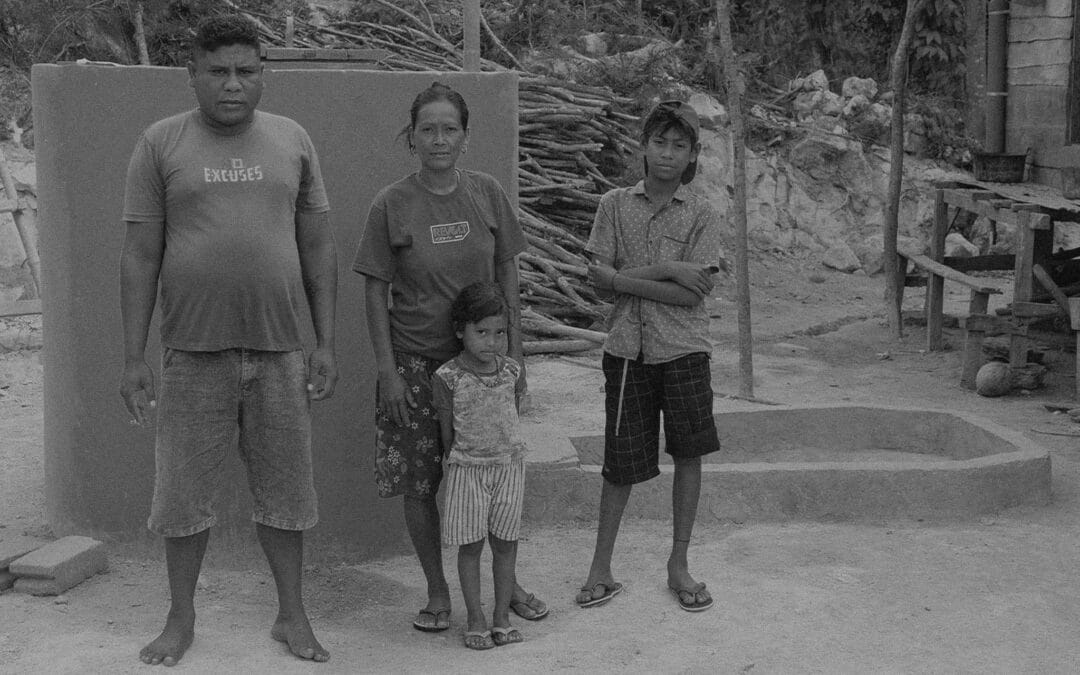Fair Future and Kawan Baik Foundation teams assess and review the cases of patients cared for by health workers in Mbinudita village, Sumba Timur.
A day of sharing and training with teachers and health workers from the Primary Medical Care program. An evaluation of more than 300 cases of ill or injured patients. The results are simply breathtaking.
As part of the primary medical care program evaluation week, the medical team of Fair Future and Kawan Baik went (for the second time this week, see the resume of the first time here) to meet teachers and health workers in the Mbinudita village, East Sumba. This was the second time we had visited the village in a week. Indeed, Mbinudita is a pilot project for many projects: Education with the construction of the school, hygiene and health with the Water Connections program and access to basic and primary health care with the PMC program.
The opportunity for us to realize how innovative and effective this program is. In this village and on this site, six health workers (trained by the foundation in the primary medical care program) have cared for nearly 300 patients of all ages since December 2022. All patients were treated successfully, and all recovered. Previously, an adult patient or a child, sick or injured, did not receive medical care because no resources, doctors, medicines or dressings were present in the village. See images of patients treated by these women here.
We spoke for several hours and discussed medical situations and specific cases requiring clarification or additional information. For example, I quote: “What is this medicine for? Is it for allergies or to treat diarrhoea in a child? “. Once again, and as a reminder, the six health workers in this ultra-rural village in East Sumba are neither doctors nor nurses. They are teachers, strong and brave women who have no medical knowledge or had none before they received the complete training in Primary Medical Care, which we gave them in December of the past year. During this day, the foundation doctors (in agreement with the local government) decided to increase their prerogatives. The fight against cardiovascular diseases and the detection of heart diseases is the basis of basic medical care, but also those called “Primary”. For example, responding to headaches and dizziness requires measuring a person’s blood pressure.
Our health workers, these women teachers and until today, had no idea “how to measure blood pressure in an adult”. Today they know how to do it because we taught them. And not only do they know how to do it, but they also know how to react to so-called high blood pressure. We gave them two manual blood pressure monitors and two stethoscopes. We explained to them the theory of systole and diastole, and together, we did practical exercises on how to take blood pressure. Interpreting what high blood pressure may be required to be able to give appropriate medical treatment. The doctors of the foundation decided on a treatment protocol, and in the event of high blood pressure, the PMC health workers of this ultra-rural village of Sumba-east received the green light to give a drug to reduce the blood pressure.
Last December, they received a large pharmacy, a kind of “first aid kit”, but very complete. Given this program’s success, they used most of the available stocks. From then on, we brought them what to continue to treat: Medicines, dressings and everything they need every day in the case of this primary medical care program to save lives because that is what ‘it’s about.
Besides being able to save lives and care for a child, an injured or sick adult, this program has another effect, perhaps even more critical, which is valuing people and women in particular. None of them had ever received a work or training certificate before. Linked to the PMC training and these two days of evaluation of additional training, Fair Future and Kawan Baik gave them a “certificate of achievement and training”.There were tears, laughter and immense pride from all of us present. It was touching to see them realize that they had accomplished something for themselves and extremely rewarding for the community and the village they live and teach daily.


